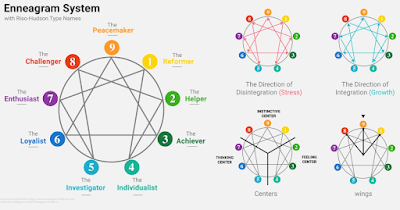Have you ever had a religious or political discussion with someone where you stated your disagreement in a carefully worded, factual, and well-reasoned response? How did it go? I’m guessing the other person didn’t say, “Oh, you’re right! Thank you so much.” In fact, I bet it’s more likely that they responded with something so irrational or incoherent that you couldn’t even understand what they were trying to say.
Why it happens
There are several reasons why this happens, but they can basically be summed up by what psychologists call the backfire effect. This effect explains why people will sometimes strengthen their beliefs about something after they are presented with evidence against it. We like to believe that we’re all rational beings who make decisions based on evidence, but that’s just not the case most of the time.
The dual-process theory is the dominant theory among psychologists to explain how we think. According to this theory, system 1 is fast, unconscious, automatic, and emotional while system 2 is slow, deliberate, analytical, and rational. The issue is that we like to think that our rational system 2 is in complete control, but system 1 has much more control than we think it does.

If we believe something is true and are confronted with conflicting data, it is emotionally difficult, especially if it is a deeply held belief. When this happens, system 1 jumps into overdrive and hijacks system 2 in order to defend our original view so that we think we are being rational, but any unbiased observer can see otherwise.
The task of evangelism is to persuade people that their deeply held beliefs are false and that Christ is the only way to eternal life. Apologetics specifically tries to do this with evidence and reason. Unfortunately, this creates the perfect setting for the backfire effect so that in many cases, apologetics may actually cause people to strengthen their current beliefs rather than convert to Christianity! Does this mean that apologists are doomed right from the beginning and there is no point in trying? Not at all. There are ways to avoid the backfire effect for those who want to be effective.
Overcoming the Backfire Effect
Just about everything I can think of has positive and negative effects. If we focus too much on the positive or the negative, we increase our risk of erring. I don’t think that most people know that the backfire effect is a possible outcome when they do apologetics, and if they do, they underestimate the likelihood of it. Learning (more) about the backfire effect can help us think about the potential negative outcomes of apologetics and evangelism rather than focusing too much on just the positive.
The backfire may seem discouraging at first, but my hope is it doesn’t prevent people from doing apologetics and evangelism. Instead, I want to encourage people to learn about and apply evidence-based methods of influencing people so they can do apologetics more effectively.
If you want to get a more robust understanding of evidence-based methods of influence, I recommend the books Think Again, Influence: The Psychology of Persuasion, and How to Win Friends and Influence People. These are not Christian books, but they can be easily applied to apologetics and evangelism and they go into more depth than Tactics which is an apologetics book on effective influence. If you want to learn more about dual-process theory or more generally, how people think, I recommend the books Thinking, Fast and Slow, Predictably Irrational, and Blindspot.
Books are great, but they are time-consuming, so I’ve written a few articles discussing several evidence-based methods of persuasion, which specifically apply these methods to apologetics and evangelism. I would recommend starting with the apologists’ secret weapon and the super-secret weapon before reading the articles on persuasion methods for apologetics.
Rather than just ending with more on your to-do list, the one bit of practical advice you can use right now is to avoid arguing with others. As soon as a discussion becomes an argument, your odds of persuasion plummet. Instead, listen to people, ask sincere and inquisitive questions (not trapping questions), and if needed, apologize for any errors (factual or social).
Thanks for reading and please let me know if you have any questions or comments.



